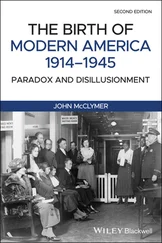*
Vienna General Hospital is a vast edifice, the sort of place you might vanish into and never emerge from; a labyrinth, and I trod carefully, clutching my tenuous thread. The hospital was founded as a benevolent enterprise and I am sure a great deal of good work is performed within its confines. Yet there is something about it that nonetheless disturbs me, and, because of this, I have never spent much time there, except when there has been an interesting case on one of the wards, and I have sought an interview. I have a few acquaintances among the doctors there, but my connections are not strong. Professor Zurbruck I know simply because his brother was a friend of my brother when they studied at the university here in Vienna. We have met a few times, at gatherings and suppers, though I had never previously sought him out at the hospital. A young doctor directed me towards Professor Zurbruck’s quarters, and I walked swiftly along the corridors, thinking that this really was the sort of place in which one might need a ball of twine yet all the while trying to keep my thoughts firmly on the matter in hand.
*
At Professor Zurbruck’s door, I knocked and waited for a response, but my knock sounded hollow and as if I summoned no one, and I perceived that I must wait. Indeed I was obliged to pace the corridors, avoiding the milling hordes of students, for a good hour before Professor Zurbruck returned. I had almost given up hope, when he emerged abruptly around a corner. Even then he was hurried and rather gruesome — he is like his brother a man of great height and unusual thinness, and yet while his brother is rather jovial and thereby reassuring, Professor Zurbruck lacks his sibling’s warmth. He extended a fleshless hand to me and suggested I explain my cause as succinctly as I could. He was polite but he emphasised — in his slow monotone — that he could only offer me a few minutes of his time, as he had an appointment very shortly.
*
In his room, as he busied himself finding materials for his next lecture, I laid out what I knew of the case of Herr S. I explained that he had been disturbed and transfixed by the notion of the General Hospital, and that he had also produced a single name, Johann Klein. I explained myself as precisely as I could yet it seemed to me that Professor Zurbruck was scarcely attending to my words. He was about to stand up, indeed, and announce that he must depart, when I mentioned that Herr S had accused himself and others of murder and had claimed there was a conspiracy to silence him.
*
‘Ah,’ said Professor Zurbruck, with a slow nod of his head, as if something had just fallen into place.
‘You recognise something in this case?’
‘I may do. He talks of a massacre?’
‘Yes, oceans of blood, he says. The massacre of women.’
‘He accuses specific professionals of murder?’
‘Yes,’ I said.
*
His manner was curious, as if he knew the answers to his questions already, and was rather contemplating how much to reveal to me than seeking enlightenment. I began to grow most eager, and I said, ‘My dear professor, if there is anything you know of this case, I entreat you to inform me. Herr S is in a very grave position, and if you were to see how dreadful are the conditions of his confinement, you would pity him.’
‘I have no doubt I would pity him. I am simply wondering if he might be — there is a chance he might be Professor Semmelweis. You might ask him if he is. Perhaps this would prompt his memory.’
‘Who is Professor Semmelweis?’
‘I must emphasise that I do not want to slander a former colleague, by suggesting he must be this poor lunatic you describe. Yet it is possible. Certainly Professor Semmelweis had become eccentric in recent years, and there were fears for his health.’
‘On what were these fears based?’
‘He had written a very rambling book, justifying himself, explaining to everyone that he had been right when they had all been contemptible fools, essentially. Or so I heard, I never read it. It is not my area of expertise. And when that was not received with the acclaim he thought it deserved, he took to haranguing his colleagues through personal letters, strewn with vicious accusations.’
‘What sort of accusations?’
‘This is why your remarks conjured the name Semmelweis. Because Professor Semmelweis has acquired a reputation for accusing his colleagues of murder, individually, in these letters, and in general in his book and other published works. And he claims, I believe, that there has been a massacre.’
‘Why does he claim this?’
‘He takes upon himself — and expects others to do the same — the burden of guilt for those women who die each year in our hospitals of childbed fever, or puerperal sepsis as it is known within the medical profession.’
‘He thinks he has killed them?’
‘Yes, I believe he claims that their deaths were caused by his actions, and by the actions of his colleagues. He calls childbed fever a global epidemic, spread by doctors. He suggests doctors are unclean, and the bearers of contagion, and this assertion has irritated many of his colleagues. Also, I believe he is not rigorous and therefore his theories have been queried. He does not enter into reasoned argument, he does not prove his case by amassing evidence through experimentation. He merely insults his opponents and slanders their reputations. In this way, he has lost his few supporters.’
‘What were they supporting?’
‘His theory about how puerperal sepsis is spread by the hands of doctors. It has been generally refuted, and anyway, it does not much concern me, as I am a surgeon. Professor Semmelweis’s focus is the woman in labour and after labour.’
‘What is his theory?’
‘A colleague once suggested it is rather like the example of Columbus’s egg. It is not a work of grave complexity. Perhaps he might have persuaded his colleagues to adopt it, purely as a cautionary measure, had he not been so bombastic. Yet his manner angered Johann Klein, Professor Johann Klein, who was the head of the lying-in department of the hospital. Yes, the theory, you are anxiously waiting, and I really must attend to my business, concerns the washing of hands in chlorinated lime solution. Professor Semmelweis talks of, now what was the expression — ah yes, “cadaverous particles” — festering particles derived from the bodies of those who have recently died of puerperal sepsis. Infection, he claimed, could be carried from a dead body to a living body through these particles. You know it is still quite usual for students and doctors to perform autopsies of women who have died in childbirth shortly before they go to examine the lying-in patients in the First Division. And Professor Semmelweis proposed that these doctors and students must wash their hands in chlorinated lime solution after they had dealt with corpses and before they conducted an internal examination of a living woman. He claimed this would prevent puerperal sepsis.’
‘And did it?’
‘The theory has never been proven by experiment or systematic investigation. Professor Semmelweis however is adamant that it is the solution. He is adamant that those who refuse to adopt his preventative measures are wilfully slaying their patients.’
‘So this is why he was cast out?’
*
Professor Zurbruck was pacing the room, in a long-limbed, leisurely manner, and now he came to rest — staring at me with his sunken eyes, and placing a long hand upon his desk. ‘He was not cast out, my good fellow. He has behaved very strangely. He fled from Vienna many years ago. It was something about debts, I think; I cannot remember the details. I think he went back to his native Budapest. That is perhaps right. You must remember I have never known the man well. Yes, I heard he reigned supreme over a lying-in ward somewhere in the Hungarian Lands, though his techniques infuriated many of his colleagues. He is a hectoring angry man, you may have noticed.’
Читать дальше












